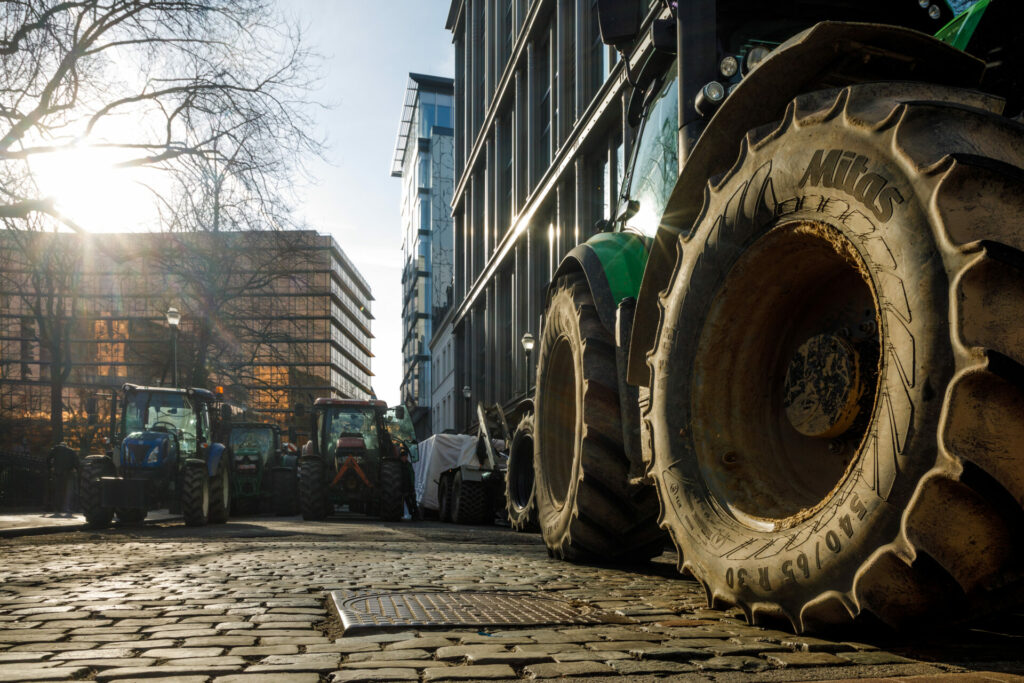The European Commission is making an initial concession to the farmers protesting across Belgium and Europe: the rule requiring farmers to leave 4% of their arable land fallow will not be introduced for now.
With the measure – which the Member States still have to approve – the Commission is responding to the farmers' protests that have been taking place in various EU countries over the past week.
"Today's measure offers additional flexibility to farmers at a time when they are dealing with multiple challenges," said European Commission President Ursula von der Leyen in a press release. "We will continue to engage with our farmers to ensure the CAP strikes the right balance between responding to their needs while continuing to deliver public goods for our citizens."
The obligation to leave 4% of the fields 'non-productive' would apply from this year, but the Commission has decided to postpone the introduction once again.
Instead, the Commission proposed that farmers who use at least 7% of their arable land for the cultivation of nitrogen-fixing crops (such as lentils, peas, or favas) and/or catch crops (plants that grow between two main crops and can serve as fodder for animals or as green manure) will also be considered as meeting the requirements.
For the Commission, the measure maintains the balance between providing farmers with "appropriate relief" and protecting biodiversity and soil quality. The requirement to leave 4% of arable land fallow is one of the points that Belgian Prime Minister Alexander De Croo wants to raise in a conversation with Von der Leyen.

Credit: Belga
In principle, the condition regarding undeveloped land has been part of the EU's agricultural policy for several years, but the rule has never actually been in force.
On social media, he called the proposal "an important first step for our farmers" on Wednesday, but argued for further postponement. "Additionally, we must jointly tackle the administrative burdens that too often come from Europe. We must also continue to work towards a fair price for the hard work of our farmers."
Now, EU Member States must give their approval before the postponement is finalised. At the European summit in Brussels on Thursday, the farmers' protests and European agricultural policy will be high on the agenda.

